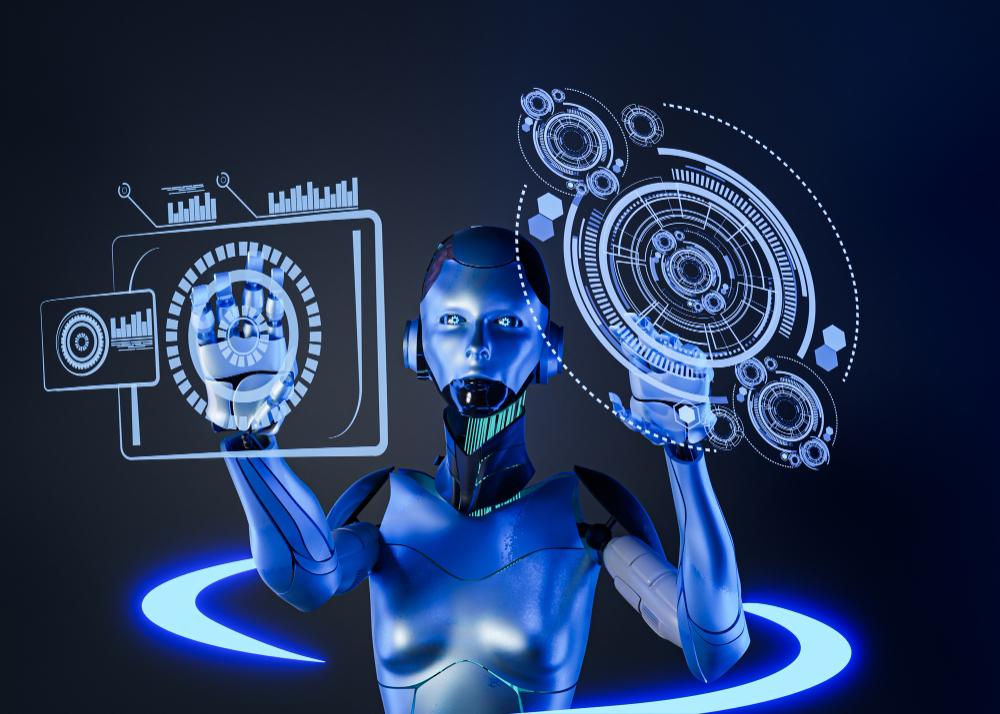The logistics industry is undergoing a massive transformation as automation and artificial intelligence (AI) reshape how goods are moved, tracked, and delivered. From real-time tracking and intelligent route planning to warehouse automation and predictive analytics, AI is helping logistics companies become faster, smarter, and more resilient.
But while the potential of AI is undeniable, unlocking it isn’t as simple as deploying off-the-shelf software. Logistics companies that want to lead in this AI-powered era need specialized expertise to design, develop, and deploy intelligent solutions. That’s why it’s increasingly vital to hire AI developers—professionals with the skills to turn automation strategies into reality.
In this blog, we’ll explore why hiring AI developers is the smartest move for logistics companies aiming to harness the full power of automation and build lasting competitive advantages.
The Growing Role of AI in Logistics
AI in logistics is no longer a futuristic concept. It’s now a competitive necessity. Key use cases include:
-
Smart route optimization using traffic and weather data
-
Automated warehouse robotics for sorting and packing
-
Predictive inventory management to prevent stockouts and overstocks
-
AI-powered chatbots to manage customer interactions
-
Computer vision for freight damage detection and quality checks
These innovations are helping logistics businesses cut costs, reduce delivery times, and improve accuracy. However, implementing such systems requires the technical know-how and custom development that only experienced AI developers can offer.
Why Hiring AI Developers Is the Key to Logistics Automation
1. Tailored Solutions for Complex Operations
No two logistics companies are the same. Routes, fleet size, customer expectations, warehouse layouts, and delivery constraints vary widely. Generic AI tools often fail to capture this complexity.
When you hire AI developers, you gain the ability to build customized solutions tailored to your logistics network. Whether you need to optimize cross-border freight movement, develop a last-mile delivery system, or implement warehouse robotics, developers create AI models that reflect your unique operational challenges and goals.
2. Seamless Integration with Existing Systems
AI is only effective when it works with your current tech stack—whether that’s your ERP, WMS, TMS, or third-party platforms. Skilled AI developers ensure seamless integration, so automation enhances rather than disrupts your workflows.
They can build APIs, data pipelines, and middleware solutions to ensure that AI models interact smoothly with other software tools, legacy systems, and real-time data sources.
3. Scalable Architecture for Growth
As your logistics operations scale, so must your AI capabilities. AI developers architect scalable, cloud-native solutions that handle increasing data volumes, user traffic, and complexity without performance degradation.
They also implement continuous learning and retraining processes so AI models evolve with your business. Whether you’re expanding to new geographies or adding new service lines, developers make sure your automation systems grow with you.
4. Advanced Analytics and Forecasting
AI is most powerful when it predicts outcomes before they happen. Hiring AI developers lets you build predictive analytics into your logistics infrastructure.
Some benefits include:
-
Forecasting demand surges
-
Anticipating route delays or disruptions
-
Predicting fuel consumption
-
Estimating delivery times with high accuracy
These predictive models drive smarter decisions and reduce costs across the supply chain.
5. Real-Time Decision Making
Today’s logistics companies can’t afford delays—not even in decision-making. AI systems can automate real-time decisions like re-routing deliveries, triggering inventory restocks, or reallocating warehouse resources.
AI developers design systems that ingest data from IoT sensors, traffic APIs, and GPS tracking in real-time. Then, they build algorithms that process this information and act immediately—without human intervention. That’s real automation.
Use Cases That Prove the Value of Hiring AI Developers
Last-Mile Delivery Optimization
A logistics company hired AI developers to build a route optimization engine powered by machine learning. By factoring in real-time traffic, delivery windows, and vehicle capacities, the company reduced delivery times by 30% and fuel costs by 20%.
Smart Inventory Management
A warehouse used AI developers to implement predictive inventory algorithms. The system now forecasts SKU-level demand and automatically adjusts restocking, reducing stockouts by 40%.
AI-Driven Customer Experience
Another logistics provider developed an NLP chatbot with help from AI engineers. The bot handles 80% of inbound queries instantly, cutting customer service costs and boosting satisfaction.
These examples show how hiring the right developers can dramatically improve the effectiveness of AI in logistics.
Hiring AI Developers vs. Buying Off-the-Shelf Software
Off-the-shelf software can be tempting—it’s fast, often affordable, and easy to implement. But it’s rarely flexible or comprehensive enough to handle complex logistics challenges.
In contrast, when you hire AI developers, you get:
-
Custom-built AI models for specific needs
-
Data-driven insights from your operational history
-
Continuous improvement through feedback and iteration
-
Ownership of IP and algorithms
-
Long-term scalability and adaptability
Hiring talent allows you to build proprietary capabilities that become strategic assets—not just tech add-ons.
Skills to Look For in AI Developers for Logistics
To ensure success, hire developers with the following capabilities:
-
Proficiency in Python, TensorFlow, PyTorch, and other ML frameworks
-
Experience with data engineering and large-scale data processing
-
Understanding of logistics processes like routing, warehousing, and fleet management
-
Knowledge of edge computing, IoT, and computer vision
-
Familiarity with cloud platforms like AWS, GCP, or Azure
-
Ability to design user-centric and explainable AI systems
A strong AI developer understands both technology and logistics—bridging the gap between vision and execution.
Final Thoughts
As automation becomes the cornerstone of logistics transformation, companies must go beyond plug-and-play tools to achieve real intelligence. Hiring AI developers is the smartest way to design AI systems that reflect your business needs, scale with your operations, and drive strategic value.
Whether you’re looking to optimize delivery routes, automate warehouses, improve customer service, or make smarter forecasts, AI developers bring the technical expertise needed to build these capabilities from the ground up.
If you’re serious about adopting AI in logistics, now is the time to hire AI developers and lead the future of intelligent supply chains.
